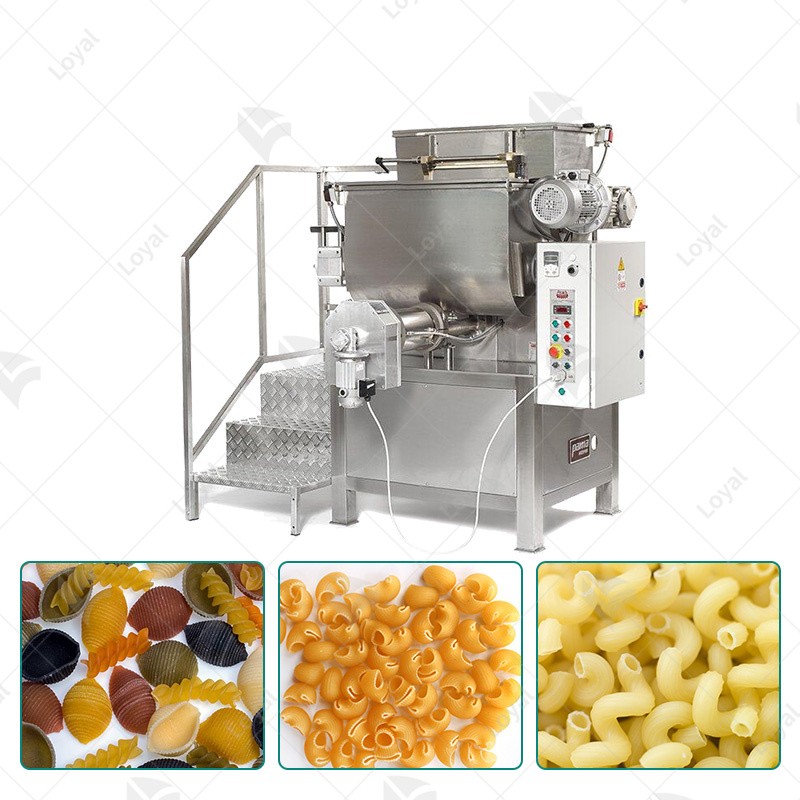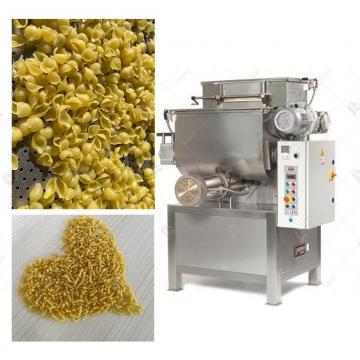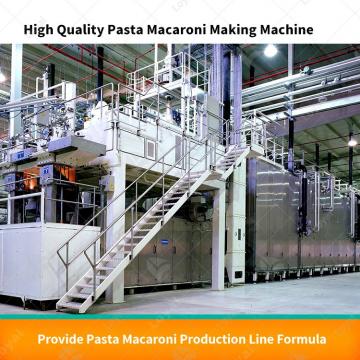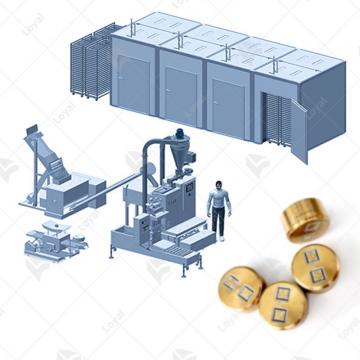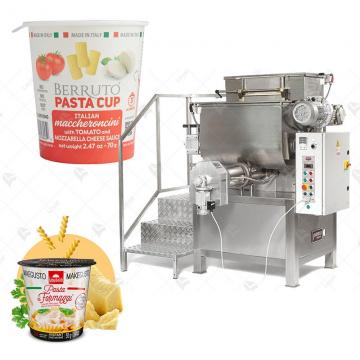High-Efficiency Solutions: The Fully Automatic Macaroni Production Process
High-Efficiency Solutions: The Fully Automatic Macaroni Production Process
Introduction
The Short-Cut Pasta Production Linetechnology of Shandong Luoya Industrial Co., Ltd. has introduced advanced technologies from Capitanio and Gidamak.In the realm of food production, the macaroni production process has undergone a transformative evolution with the advent of high-efficiency solutions. This article explores the fully automatic macaroni production process, delving into its key components, benefits, technological innovations, challenges, and real-world case studies. Efficiency stands as a cornerstone in the modern landscape of macaroni manufacturing, influencing both the quantity and quality of the final product.

Key Components of Fully Automatic Macaroni Production
The heart of efficiency lies in automated mixing and kneading processes. Cutting-edge machinery, equipped with precision controls, ensures a consistent blend of ingredients, meeting the rigorous standards of macaroni production.
The article examines advanced extrusion techniques employed in fully automatic macaroni production. Innovations in this realm contribute to the diversification of macaroni types and enhance the overall efficiency of the extrusion process.
Efficiency extends to the final stages with automated drying and pre-packaging. Streamlining these processes not only accelerates production but also guarantees the preservation of macaroni quality from manufacturing to the end consumer.
Benefits of Fully Automated Production
The integration of automation results in a substantial increase in production speed and volume. This not only meets the growing demands of the market but positions macaroni manufacturers competitively.
Automated processes eliminate human variability, ensuring unparalleled consistency in product quality. Brands like DeLallo, Faella, Pastificio Di Martino, and Rao's Homemade rely on such consistency to maintain their reputation for premium macaroni.
An exploration of the benefits would be incomplete without acknowledging the significant reduction in labor costs and human errors. Automation minimizes the reliance on manual labor, simultaneously enhancing efficiency and reducing the margin for mistakes.
Technological Innovations in Macaroni Production
The article delves into the incorporation of smart sensors and artificial intelligence in the macaroni production process. These technological marvels contribute to real-time monitoring, adaptive adjustments, and overall optimization.
The customization of production parameters for different macaroni types becomes a focal point. Technological innovations allow manufacturers to tailor their processes, meeting the unique specifications of DeLallo, Faella, Pastificio Di Martino, Rao's Homemade, and other renowned brands.
Sustainability takes center stage with a discussion on energy-efficient machinery. The article emphasizes the importance of adopting eco-friendly practices in macaroni production, aligning with global initiatives for a greener future.
Challenges and Solutions
Potential challenges in automated production are explored, accompanied by strategies to address and overcome them. This section provides valuable insights for companies considering the transition to fully automatic processes.
Maintaining product quality is a priority, and the article outlines the implementation of stringent quality control measures. Assurance of quality aligns with the expectations of discerning consumers and sustains the reputation of leading macaroni brands.
Flexibility in the system is crucial for accommodating recipe variations. The discussion revolves around how fully automatic macaroni production systems can adapt to changes, ensuring versatility in product offerings.
Case Studies: Successful Implementation of Fully Automatic Macaroni Production
Real-world case studies showcase the success stories of companies like DeLallo, Faella, Pastificio Di Martino, and Rao's Homemade. These examples offer valuable insights into the practical implications and market impact of fully automated macaroni production.
An in-depth analysis of market impact follows the case studies, shedding light on how embracing advanced production methods translates into market success. The achievements of these brands underscore the significance of efficiency in the competitive landscape.

Future Trends in Macaroni Production Technology
The article concludes with predictions for future automation advancements in macaroni production. Insights into upcoming technologies set the stage for continuous innovation in the industry.
Embracing Industry 4.0 principles for enhanced connectivity and data analysis is explored. The article discusses how connectivity can revolutionize the macaroni production landscape, paving the way for unprecedented efficiency.
The future trends section wraps up with a focus on sustainable practices in macaroni manufacturing. As the industry evolves, the integration of sustainable methods becomes imperative for long-term success.
Frequently Asked Questions about Macaroni Production Process
How does automation impact the taste and quality of macaroni products?
Automation contributes positively to taste and quality by ensuring precise measurements and consistent processes. This results in a uniform product that adheres to the high standards set by renowned brands such as DeLallo, Faella, Pastificio Di Martino, and Rao's Homemade.
Are there any specific challenges associated with fully automatic macaroni production?
While automation brings numerous benefits, challenges such as initial implementation costs and the need for skilled maintenance are acknowledged. However, the long-term advantages in efficiency and quality often outweigh these challenges.
Can fully automated systems adapt to changes in macaroni recipes?
Absolutely. One of the key features of modern automated systems is their flexibility. They can easily adapt to changes in macaroni recipes, allowing manufacturers to introduce new variations with minimal downtime.
How do smart sensors and AI enhance the macaroni production process?
Smart sensors and AI play a crucial role in real-time monitoring and adjustment. They enable proactive problem-solving, optimize production parameters, and contribute to the overall efficiency and quality control of the macaroni production process.

Conclusion
In conclusion, the fully automatic macaroni production process, with its focus on efficiency, consistency, and sustainability, emerges as a pivotal force in shaping the contemporary landscape of macaroni manufacturing. As we witness the successful implementation by leading brands like DeLallo, Faella, Pastificio Di Martino, and Rao's Homemade, it becomes evident that technology not only meets the challenges of today but propels the industry towards a future marked by innovation and excellence. The fusion of advanced machinery, smart technologies, and a commitment to sustainable practices ensures that the macaroni production process remains not only efficient but also aligned with evolving consumer expectations and global initiatives for a more sustainable future.

